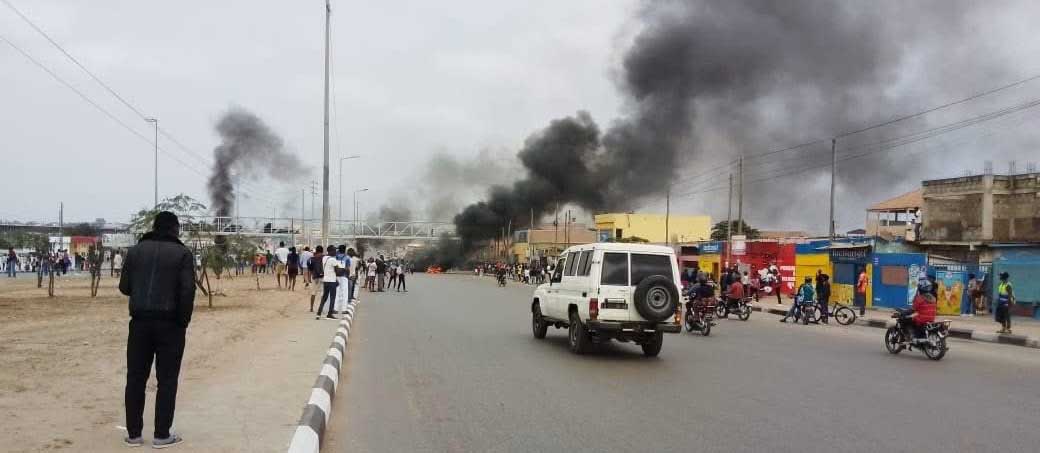One of Africa’s top oil producers, the country is in turmoil after protests erupted over a sharp fuel price hike driven by IMF-backed subsidy cuts…
By Nicholas Mwangi
A three-day strike by taxi drivers in Angola against the rise in fuel prices escalated into widespread protests across the country.
The protests were met with heavy repression by the Angolan security forces that left at least 22 people dead (with some reports claiming an even higher number), hundreds injured, and more than 1 200 detained, according to civil society groups and media reports.
The unrest was fuelled by the government’s decision to raise the price of petrol by 33% from 300 to 400 kwanzas (R6 to R7.89) per litre as part of a phased removal of fuel subsidies. The move, effective from July 1, is part of economic reforms encouraged by the International Monetary Fund (IMF), which has pressured the Angolan government to reduce public spending on fuel subsidies and redirect funds toward health and education. Fuel subsidies accounted for 4% of GDP in 2024, and are projected to fall to around 1.8% in 2025.
However, in a country where more than a third of the population lives on less than USD 2.15 (R38.28) a day, and where the unemployment rate stands at 14.5%, the removal of subsidies has intensified public frustration. Inflation currently sits at 27.5%, and over 80% of the employed population works in the informal sector, earning meagre wages.
Taxi and public transport operators raised fares in response to the hike, affecting ordinary citizens who rely on public transport for their daily commutes. What began as a strike by transport workers quickly turned into large-scale anti-government protests, as thousands took to the streets in Luanda and other major cities.
In several areas, security forces reportedly used live ammunition and tear gas to disperse crowds. The United Nations Human Rights Office spokesperson expressed grave concern over the state’s response.
“Authorities in Angola must carry out prompt, thorough, and independent investigations into the deaths of at least 22 people, as well as associated human rights violations,” said a spokesperson from the UN Human Rights Office.
“Unverified footage suggests that security forces used live ammunition and teargas to disperse protesters, which points to an unnecessary and disproportionate use of force.”
The protests are the latest expression of public anger in Angola, a country that paradoxically remains one of Africa’s largest oil producers. As oil exports generate billions in revenue, ordinary citizens see little to no benefit in their daily lives, and the population struggles with poverty, inequality, and chronic unemployment, particularly among the youth.
The government has so far defended the subsidy cuts as necessary for long-term economic stability. But with living costs rising and household incomes shrinking, many Angolans feel the IMF-driven austerity reforms are being implemented at the expense of the most vulnerable, as the removal of fuel and food subsidies will see a sharp increase in living costs, fuel, transport, and food.
Without social protections and targeted welfare programmes, such reforms risk sparking even more social unrest in countries already burdened by inequality and economic fragility, with Angola as a clear testament to this.
Across the continent, IMF conditions have stirred widespread resistance. In Kenya, for example, the Finance Bill 2024, introduced in line with the IMF’s fiscal consolidation demands, triggered a wave of nationwide protests beginning in June 2024, driven largely by young people.
The bill proposed sharp tax hikes including on bread, sanitary products, and digital services and was seen by many as unjust, burdensome, and regressive.
As in Angola, Kenyans questioned why basic goods were becoming more expensive in a country with abundant resources and rising external debt. – People’s Despatch





























